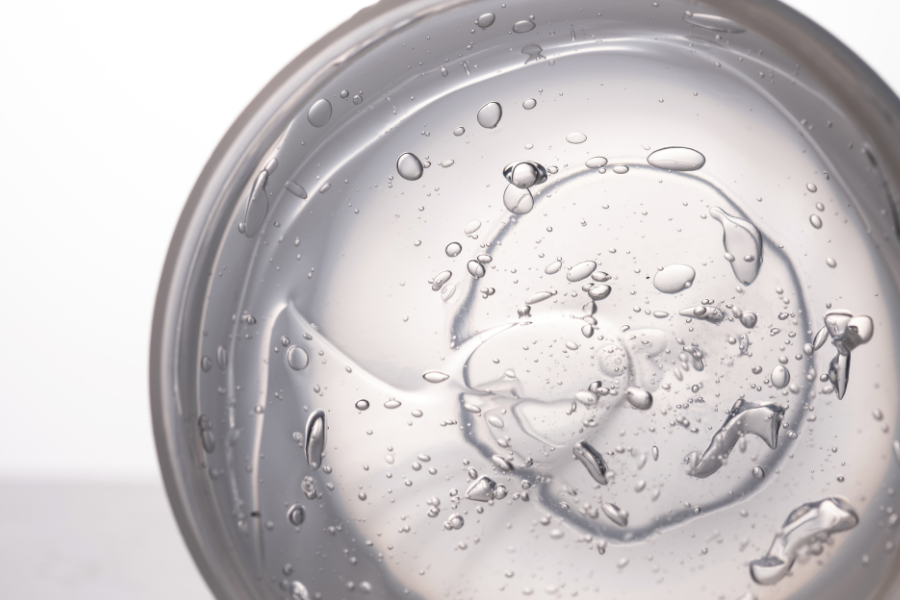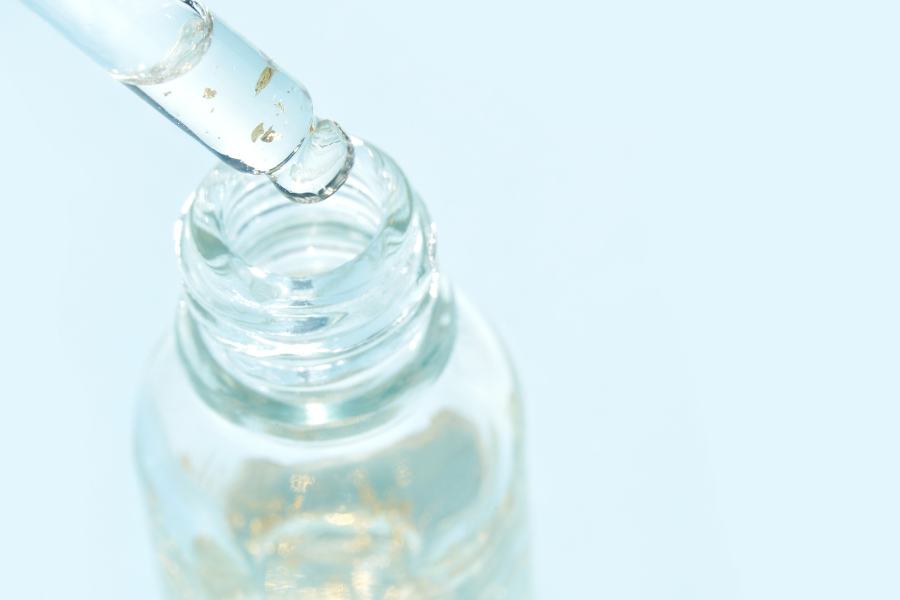What we Love About Humanin
Humanin is an extraordinary peptide in the longevity realm, similar to one of our most beloved yet underrated peptides, SS-31 [LINK HERE]. Humanin has a positive effect on the mitochondria. This would be a great peptide to alternate with SS-31 perhaps doing one round per year of each for longevity purposes. Both would be beneficial alongside/before a MOTS-C protocol.
Overview
Humanin is a small peptide that has garnered significant attention in the scientific community due to its potential therapeutic benefits. Discovered in 2001, humanin has been the subject of extensive research, revealing a wide array of biological functions that may have profound implications for treating various diseases and conditions associated with aging. There are quite a few things that make this peptide stand out, and let’s explore some of its remarkable features in greater detail.
What is Humanin?
Due to its small size and absence of post-production alterations, Humanin is classified as a micro-peptide. Studies suggest that the standard length of micro peptides ranges from 100 to 150 amino acids.
Humanin stands out as one of the smallest micro peptides available, consisting of only 24 amino acids. Its main attribute is believed to lie in its ability to regulate cell death by interacting with the Bax protein, thereby inhibiting its activity during times of cell death.
Protective Effects and Mechanisms of Action
One of the most remarkable aspects of humanin is its broad spectrum of protective effects. Humanin has been shown to protect cells against various types of stress and damage, including oxidative stress, apoptosis (programmed cell death), and metabolic disturbances. This cytoprotective effect is mediated through multiple pathways, including the interaction with specific receptors on the cell surface.
Humanin binds to a receptor complex composed of the ciliary neurotrophic factor receptor (CNTFR), the WSX-1 receptor, and the gp130 receptor. This binding activates several intracellular signaling cascades, such as the JAK/STAT, PI3K/Akt, and ERK1/2 pathways, which are crucial for cell survival and function. Humanin stimulates resilience against damaging stimuli and aids in the preservation of cellular integrity by activating these pathways.
Benefits of Humanin
Humanin Peptide and Neuroprotection
Research suggests that Humanin may have the potential to prevent certain forms of programmed cell death. For instance, there is speculation that the peptide could protect neurons from cell death triggered by the buildup of beta-amyloid plaque, particularly in the context of Alzheimer’s disease. Additionally, studies utilizing NMDA pulses indicate that Humanin may shield neurons from excitotoxic damage.
Experimental studies suggest that Humanin may protect neurons through two distinct pathways. These pathways collaborate to inhibit mitochondria from initiating cell death. It is theorized that Humanin may halt the apoptosis process by binding to the Bcl-2-boosting proteins tBid and Bid.
Subsequent studies have demonstrated that humanin can protect neurons from the toxic effects of amyloid-beta, a hallmark protein associated with Alzheimer’s pathology. Moreover, humanin has shown promise in models of other neurodegenerative diseases, such as Parkinson’s disease and Huntington’s disease, by reducing neuronal cell death and improving cognitive functions.
Humanin Peptide for Anti-Aging
Perhaps one of the most exciting areas of humanin research is its potential role in aging and longevity. As organisms age, the efficiency of mitochondrial function declines, leading to increased oxidative stress and cellular damage. Humanin, being of mitochondrial origin, may play a crucial role in mitigating these age-related changes.
Studies in mice have shown that humanin levels decline with age, and supplementation with humanin analogs can extend lifespan and improve health span (the period of life spent in good health). These findings point to humanin as a potential anti-aging molecule that could help maintain mitochondrial function and cellular health in aging individuals.
Humanin Peptide and Heart Health
Beyond its neuroprotective properties, humanin also appears to have beneficial effects on cardiovascular health. Research indicates that humanin can protect cardiac cells from ischemia-reperfusion injury, which is damage caused by the restoration of blood supply following a period of restricted blood flow. This protection is vital for reducing the impact of heart attacks and other ischemic conditions.
Humanin Peptide and Vision
Humanin may be beneficial for eye health. Studies on age-related macular degeneration (AMD) have suggested that Humanin may play a crucial role in preventing damage to the retinal pigment epithelium (RPE). The retinal pigment epithelium (RPE) nourishes the retinal cells responsible for vision, maintains the inner eye’s functioning, filters blood components in the eye, and absorbs light. Humanin has been theorized to protect RPE cells from oxidative stress and cell death by enhancing mitochondrial levels and preventing AMD.
Humanin Peptide and Bone Structure
Researchers have speculated on two main ways in which Humanin may support bone structures. The first is by preventing chondrocytes, the cells responsible for maintaining bone integrity and strength, from undergoing cell death. Additionally, Humanin is believed to decrease osteoclast production while simultaneously increasing chondrocyte growth. Osteoclasts are cells responsible for breaking down bone during the bone remodeling process. Over-activation of these cells can lead to severe bone loss. Research suggests that Humanin supplementation may reduce significant bone remodeling and loss by inhibiting osteoclast development.
Humanin Peptide and Insulin Resistance
Studies have suggested that Humanin (HN) may have the potential to enhance glucose tolerance in animals without diabetes and prevent the loss of pancreatic beta cells. This speculation further implies that Humanin could be relevant for research in the context of both type 1 and type 2 diabetes. Additionally, research has indicated that Humanin may regulate blood glucose levels by acting on the hypothalamus, thereby increasing insulin sensitivity in the liver.
Side Effects
Given humanin’s involvement in various cellular pathways, there is a possibility of unintended consequences, such as dysregulation of cell growth or interference with normal physiological processes. Additionally, the long-term effects of humanin supplementation, particularly in aging populations, are yet unknown.
Conclusion
Humanin peptide represents a promising frontier in medical research with its multifaceted protective effects and potential therapeutic applications. As our understanding of this unique peptide grows, so too does the possibility of developing innovative treatments that harness humanin’s power to enhance cellular resilience, protect against disease, and promote healthy aging. The journey of humanin from a mysterious peptide to a potential therapeutic agent is a testament to the remarkable complexities and capabilities of molecular biology.
FAQ
Is Humanin naturally produced in the body?
Yes, Humanin is endogenously produced in mitochondria.
What dosage of Humanin is recommended?
Dosages vary depending on specific goals, but typical ranges are 1–10 mg per day.
Does Humanin affect muscle growth?
While Humanin isn’t directly associated with muscle growth like anabolic steroids, some studies suggest it may enhance muscle regeneration and protect against muscle damage.
Can Humanin improve cognitive function?
Humanin’s neuroprotective properties make it an interesting candidate for cognitive health. It may help protect neurons from oxidative stress and apoptosis, potentially benefiting cognitive function.
Can Humanin extend lifespan?
Studies in animals (such as mice) have shown that Humanin administration can increase lifespan.
Is Humanin related to other peptides like MOTS-C?
Yes, both Humanin and MOTS-c are mitochondrial-derived peptides. However, they have distinct functions.
Get Started, Book a Free Consultation
Book a free 20-minute consultation to learn more about how this peptide can help you.




